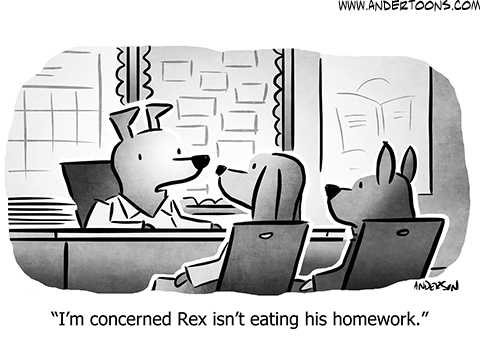Everyone knows that nutrition is essential for a healthy life. That’s as true for your pet as it is for you. As it turns out, the kind of nutrients that your pet needs are largely the same as the ones you do! Below, your Roanoke, VA veterinarian elaborates on the basic elements of your pet’s nutritional needs.
Protein
Protein is extremely important for your dog or cat because it’s the basic building block for every bodily tissue. Diets made for puppies and kittens tend to be very high in protein, since young pets need a lot of protein as their muscles and tissues develop. Pregnant mother pets are also sometimes prescribed a high-protein diet, as the extra boost of protein can help them deliver their litters safely.
Carbs
Your pet’s digestive system breaks down carbohydrates from food into glucose, a simple sugar that acts as the fuel for your pet’s body. So, carbohydrates provide energy for just about everything your pet does. That’s why most pet foods contain things like potatoes and rice—these kind of high-carbohydrate foods are great for providing energy and keeping your pet going.
It’s also worth noting that fiber, a type of carbohydrate, is another important nutrient that your pet needs. It slows the absorption level of sugar into your pet’s bloodstream, thereby regulating glucose levels. Fiber also helps your pet to feel full after they’ve eaten, which is why many weight-loss diets contain a lot of fiber.
Fats
It’s easy to think of fat as exclusively a bad thing, but that’s not true. In fact, your pet needs the right amount of healthy fats in their diet, just like you do. Fat provides your pet with energy. Plus, the fat that your pet’s body doesn’t use right away is stored as a reserve and used when your pet needs it. Pets that are more high-activity, such as a working farm dog, will need more fat in the diet than pets who are low-key by comparison.
Vitamins and Minerals
Don’t forget that your pet also needs the right vitamins and minerals, plus fatty acids and amino acids, for good health. Make sure that your pet’s diet contains the right vitamins and minerals for their needs—check with your veterinarian about your pet’s current food to make sure it’s up to par.
Do you have questions about your pet’s nutrition? Contact your Roanoke, VA veterinary clinic.





